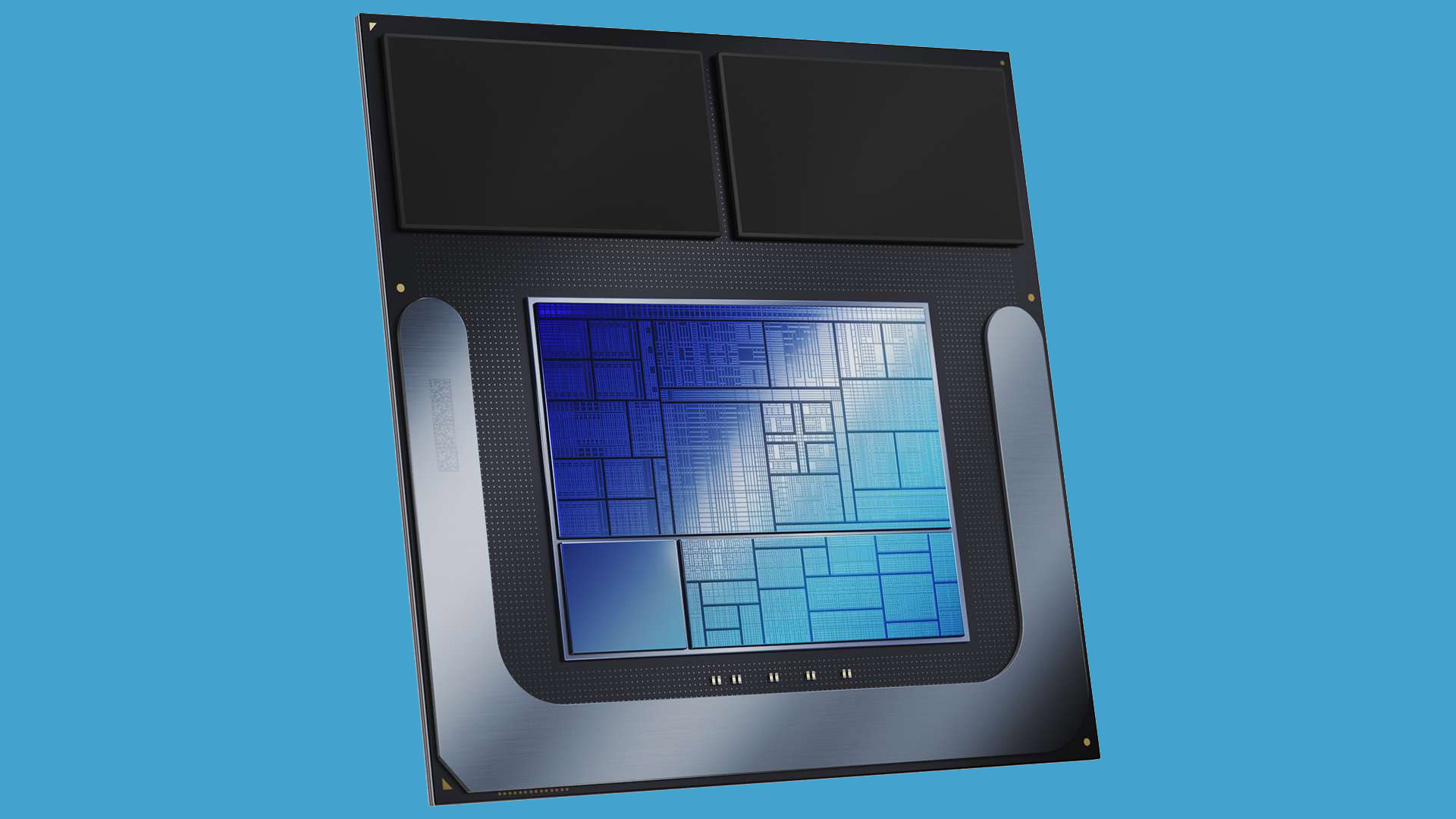Affiliate links on Android Authority may earn us a commission. Learn more.
Buying a laptop in late 2024 is going to be hella complicated
June 16, 2024
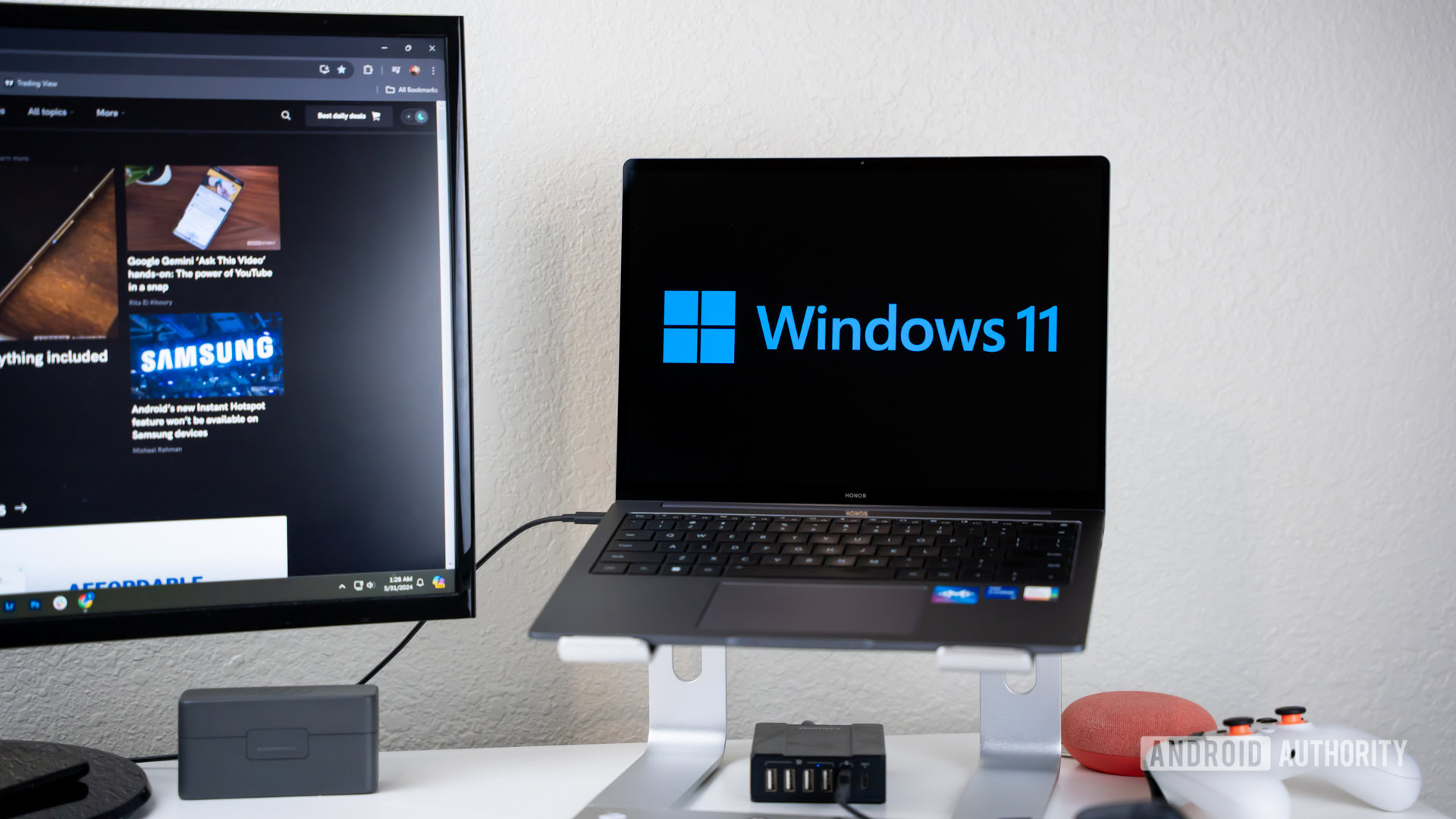
For the past few years, buying a laptop has been pretty straightforward. First, you decide whether you want a Windows laptop, a Chromebook, or a MacBook. Then, you pick a budget and buy something you like that fits within it. That was all it took.
In late 2024, though, things won’t be so simple. You’ll still need to decide between Windows, Chrome OS, and macOS, that’s for sure, but there are a lot of changes going on in the Windows world. The AI revolution has brought us new Arm-based processors from Qualcomm that will still run Windows, but not necessarily the same Windows experience you’re likely used to. Meanwhile, new chips from Intel are very different from their old chips, which might require you to alter your expectations of what you can do with your laptop once you buy it. Then, you’ll also have your usual Intel/AMD choices. On top of all this, AI features that appear on some Windows machines won’t appear on others. It’s very messy.
Meanwhile, even Chromebooks are a bit more complicated than in the past, with the introduction of the Chromebook Plus program late last year.
Although it’s early days, and we can’t explicitly tell you which machines you should buy, we can at least give you a bird’s-eye view of the industry as it stands. Armed with this information, you should have a slightly easier time buying a laptop when the holidays roll around.
Are you planning on buying a laptop in 2024?
Buying a laptop in 2024: A summary of choices
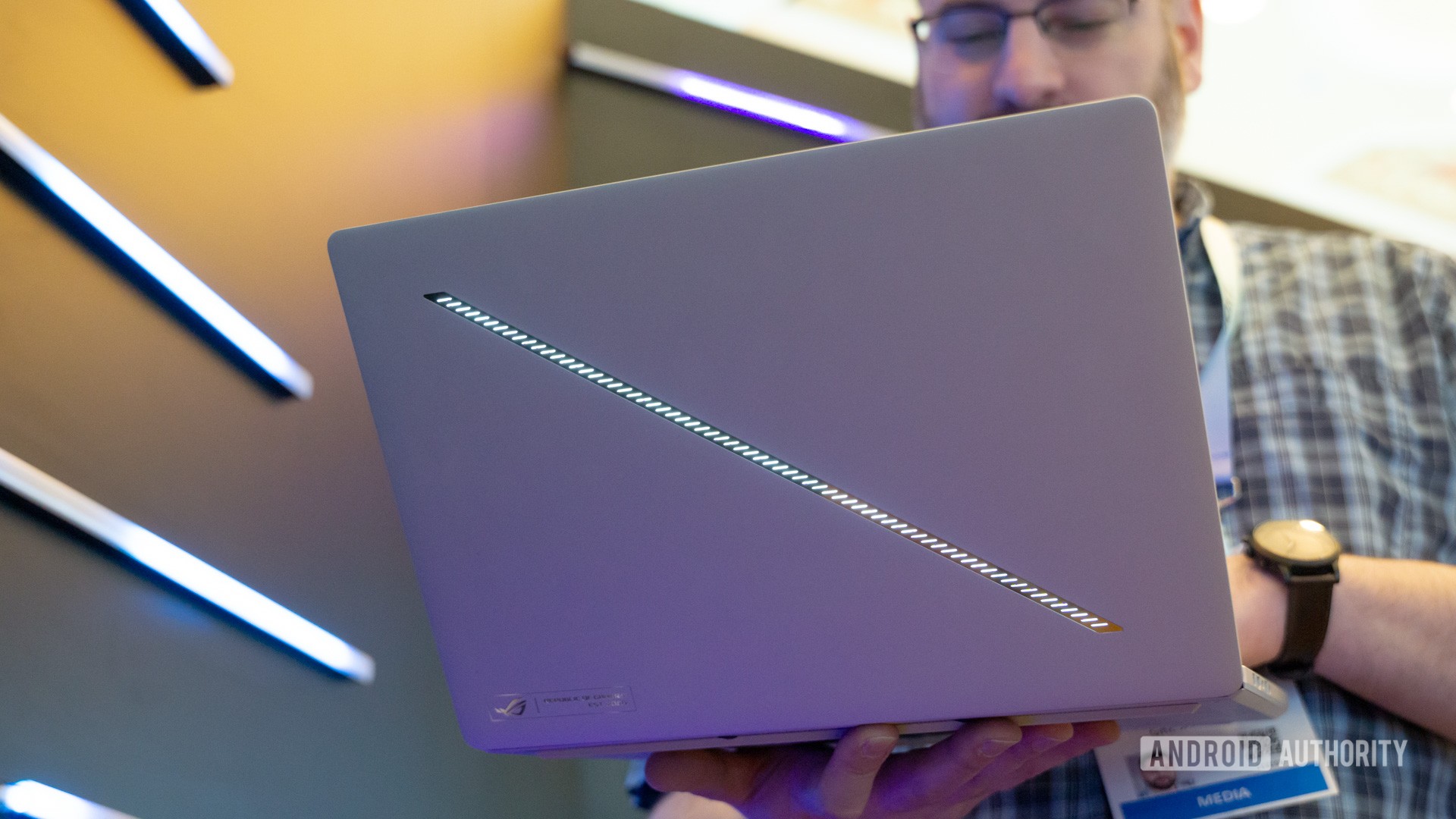
The rest of this article is going to talk in-depth about each major category of laptop you’ll need to pick from later this year. However, if you’re just looking for a quick summary, this should give you the basic gist.
- Snapdragon X: Any machine with a Snapdragon X Elite or X Plus chip will run Windows on Arm. Although this looks just like the Windows you’re likely familiar with, it is not the same. It will not natively run some programs (meaning a slight performance hit from x64 emulation) and could fail to run some games — even really popular AAA titles. The advantage, though, will be better battery life and AI smarts.
- Intel (not Lunar Lake) and AMD: Intel chips that aren’t part of the Lunar Lake family and all 2024 AMD chips will come with your “normal” Windows machines. They’ll be x64 systems with the full version of Windows that supports virtually every Windows program and game ever created.
- Intel Lunar Lake: These are also x64 machines with the usual Windows installed. However, a Lunar Lake system on a chip (SoC) will have either 16GB or 32GB of built-in RAM, which means the laptop itself will not have RAM you can swap out. If you’re the kind of person who likes to upgrade RAM later on down the line of a laptop’s lifespan, these machines won’t be for you.
- Chromebooks and Chromebook Plus: Just like in previous years, there are going to be more Chromebooks out there than you could even imagine. However, now there are select Chromebooks part of the Chromebook Plus program. These systems need to meet certain criteria and will usually offer the best performance and additional software features compared to normal Chromebooks.
- Apple MacBooks: Although Apple’s M-series silicon has changed the industry, not much has changed with the laptops over the past year. Buying Windows or Chrome OS laptops will be a bit confusing in 2024, but buying a MacBook will be the same as it has been since the M1 launched in 2020.
If you want to dive a bit deeper into what’s going on in these various categories, continue reading!
Copilot Plus PCs, Snapdragon X, and Windows on Arm
The launch of Qualcomm’s Snapdragon X series of chips and Microsoft’s Copilot Plus PC program are two of the biggest things to happen in the computing industry since Apple launched the M1 chip. The Snapdragon X Elite and X Plus chips promise something Windows users have wanted for a very long time: high-performance laptops that have incredible all-day battery life.
In tandem with the launches of these chips, Microsoft announced the new Copilot Plus PC program. This is essentially a certification that the laptop meets or exceeds certain guidelines that make it an AI-first PC. These guidelines include 16GB of RAM or more, 256GB of internal storage or more, and a dedicated neural processing unit (NPU) capable of at least 40 trillion operations per second (TOPS). The laptop will also have a dedicated Copilot key in the spot where the right CTRL key is normally. As of now, all Snapdragon X laptops are Copilot Plus PCs, but not all Copilot Plus PCs will be powered by Snapdragon X chips.
Snapdragon X laptops will look like a regular Windows laptop, but be careful — they are very different.
Of course, if it were so easy to make a high-performing chip that sipped on battery power, Intel and AMD would have done it years ago. The big trade-off with Snapdragon X/Copilot Plus PCs is that they run Windows on Arm. This looks just like the Windows 11 system you likely use daily, but it is not exactly the same underneath. Arm is a unique processor architecture that is different from x 86 and x64, which is the architecture most Windows machines have run on for over two decades. Because the underlying architecture is different, Windows programs designed for x64 do not natively work on Arm.
Now, that doesn’t mean x64 programs won’t work on Copilot Plus PCs. In most situations where a user tries to load an x64 program on Arm, Windows will use an emulator to run that program. For the majority of programs out there, this will work fine, but performance is by no means guaranteed. This will be especially problematic with games, as there are not many PC games out there that support Arm, and emulating a graphics-intensive game is no easy feat.
That all being said, more programs (and games) support Arm every day. That includes the world’s most popular web browser, Google Chrome, and the productivity apps you probably use all the time, including Dropbox, OneDrive, Zoom, Photoshop, Microsoft Office, and more.
In theory, Snapdragon X laptops should be plenty powerful while offering all-day battery life.
Additionally, Copilot Plus PCs will also come with a bevy of on-device AI features. This will bring some cool tricks you won’t find on other laptops, such as live translations, the ability to generate text and images without an internet connection, and special features for popular programs like DaVinci Resolve, CapCut, and more. It also comes with a controversial program called Recall, which saves a screenshot of your display every five seconds and allows you to use AI-powered search to parse through them so you can find files, copy lost text and images, and more. Thanks to its controversial nature, though, Microsoft will allow users to opt out of it.
All in all, Copilot Plus PCs are some of the most unique Windows laptops you’ll find on the market this year. Stay tuned because reviews of these new laptops will start pouring in throughout the summer. That’s when we’ll really know how they stack up against everything else.
Intel and AMD with ‘normal’ Windows 11

Qualcomm may be pushing into new territory with the Snapdragon X chips, but that doesn’t mean it’s not business as usual for Intel and AMD. Both companies have new chips — either already here or on the way — that run the standard x64 Windows 11 and support all the programs and games you know and love.
Let’s start with AMD. At Computex 2024, the company announced its new Strix Point Ryzen processors, including the new AMD Ryzen AI 300 series. These x64 processors boast a brand new dedicated NPU, in some cases capable of hitting over 50 TOPS. AMD also claims these chips are more power-efficient than its previous models. Laptops with Strix Point Ryzen processors will come with AI features out of the box and will eventually get some or all of the features offered with Copilot Plus PCs, although it is unclear if they will actually have that certification.
Meanwhile, Intel already has its Meteor Lake chips, which are also x64 processors. These have a dedicated NPU, but they are stuck at 11.5 TOPS, which means they will not be Copilot Plus PCs and will lack most of the AI features the previously mentioned AMD chips will get. Still, these machines will offer the Intel performance and program compatibility users expect, even if battery life won’t be much improved from what we’ve seen from Intel over the past few years.
In other words, Intel and AMD are still making chips that power reliable x64 Windows machines, which are perfect for businesses and gamers.
Intel Lunar Lake, which is very different now
At Computex 2024, Intel took the wraps off a new Lunar Lake chip design. This is a wild revamp of what we usually expect from Intel, and the company is positioning it as an x64-based “best of both worlds”: the power and reliability of x64 with the battery efficiency of Apple’s M-series and Qualcomm’s Snapdragon X series.
Notably, the SoC has RAM built-in. This is advantageous as it allows for maximum efficiency. Instead of the CPU needing to communicate with the motherboard and then with the RAM sticks, the CPU and RAM are part of the same package. This increases performance while significantly dropping the power needed to sustain that performance.
Intel's Lunar Lake might be the game-changer, offering full Windows power with MacBook-level battery life. Time will tell, though.
The trade-off here, though, is that you can’t add more RAM to the SoC, and it won’t support “normal” RAM connected to a motherboard slot. In other words, if you buy a Lunar Lake machine, it will have a certain amount of RAM, and you will never be able to upgrade it. Lunar Lake will come in either 16GB or 32GB flavors, so we recommend going with 32GB at all costs, especially if you want your laptop to be relatively future-proof.
Laptops with Lunar Lake processors won’t be here until at least Fall 2024, so we have no idea how they will stack up against the competition when it comes to performance and battery life. However, one early benchmark is pretty exciting. It shows a Meteor Lake laptop and a Lunar Lake laptop running the same benchmark at the same performance level, with the Lunar Lake machine using up to half the power to do it. That’s encouraging!
Chromebooks and the Chromebook Plus program
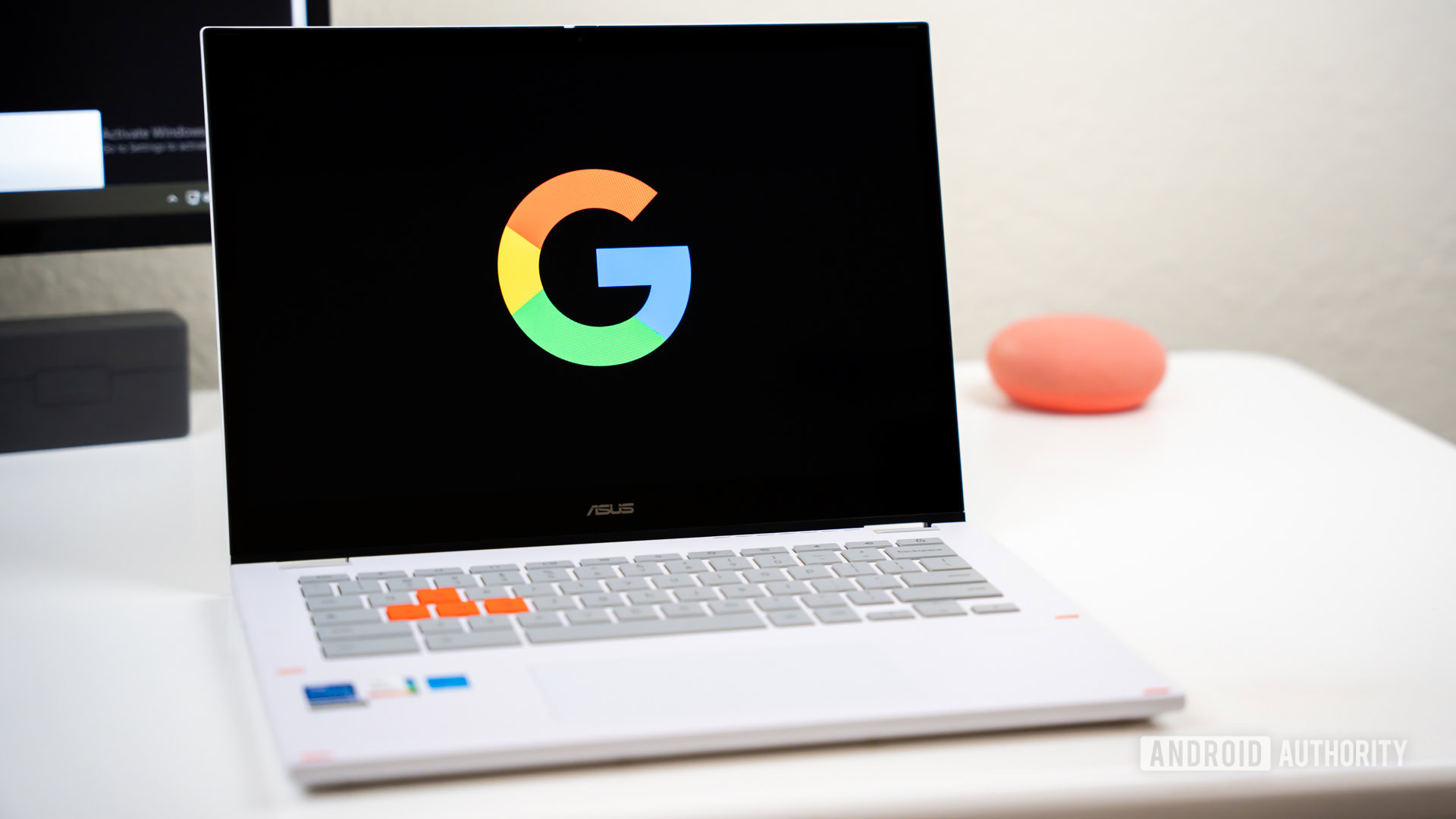
Chromebooks haven’t changed much over the years. They are still reliable, inexpensive, and last all day, thanks to Chrome OS sipping on the battery. However, they also lack support for many staple business/creative programs and aren’t great for PC gaming — unless you’re comfortable only ever streaming your games from the cloud.
Chromebooks changed significantly late last year, though, with the introduction of the Chromebook Plus program. Laptops with the Chromebook Plus label must meet certain criteria, including 8GB of RAM or more, 128GB of storage or more, a webcam with a resolution of at least 1080p, and a display with a resolution of 1080p or better. This hardware also allows for cool software features to be supported that other non-Plus models won’t get, such as Magic Eraser.
If you want the best Chromebook you can get that supports all the best features, be sure to look for the 'Chromebook Plus' label.
This program makes it easy for the consumer to parse out the standard, low-power Chromebooks from the beefier machines that can do much more. This is especially helpful because some companies (we’re looking at you, Lenovo) have tried to charge premium prices for Chromebooks that are woefully underpowered. Going forward, as long as you look for the Chromebook Plus label, you’ll know you’re getting something good.
For folks who don’t care about performance or neat software features and just need something for basic web browsing, you can safely ignore Chromebook Plus machines. Just find a great Chromebook within your budget and you’ll be fine. For everyone else, though, we highly recommend starting your Chromebook shopping journey by filtering out anything that doesn’t have “Chromebook Plus” on it.
Apple MacBooks
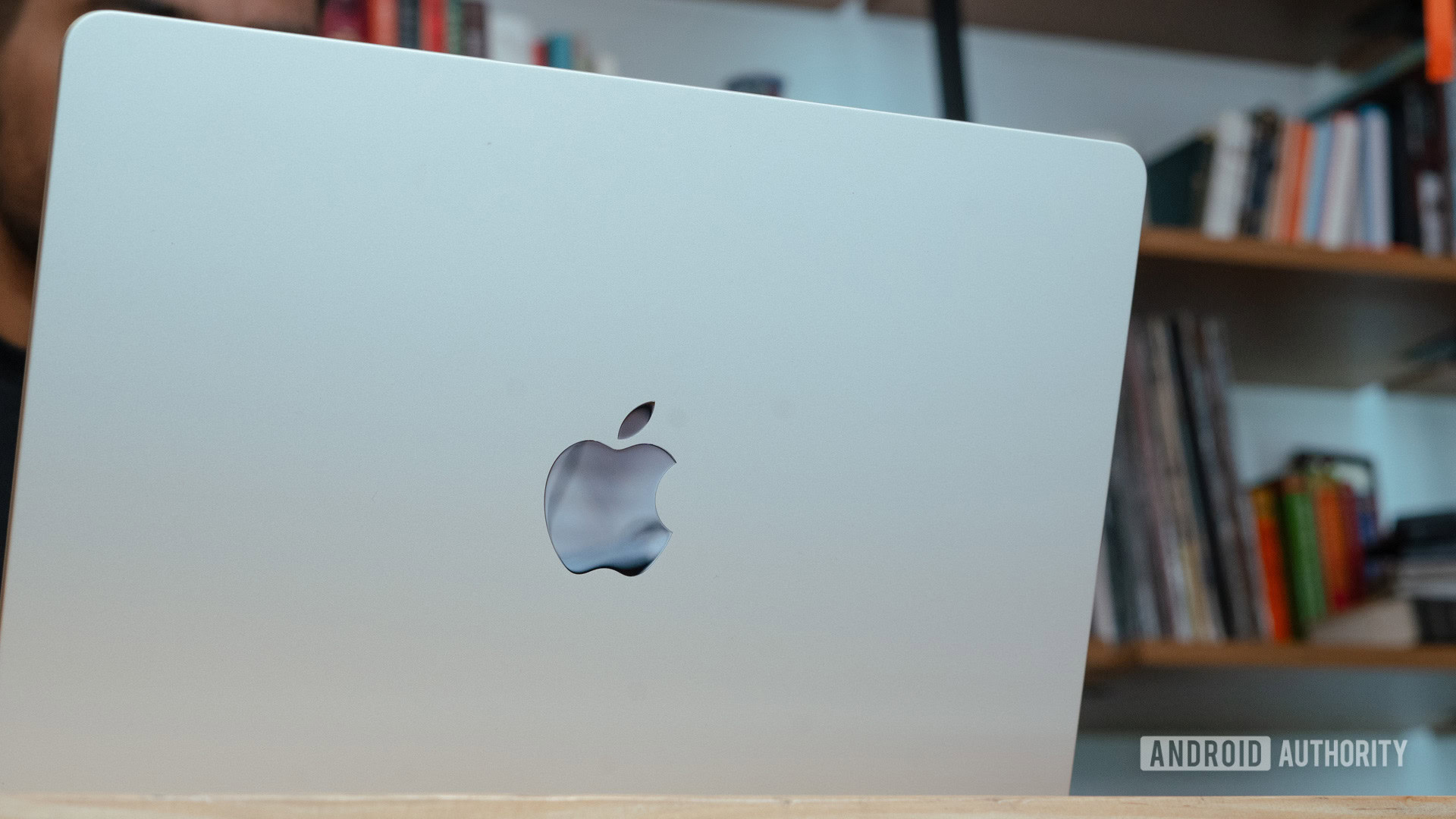
Finally, we have MacBooks. In 2020, Apple announced the Arm-based M1 silicon, the company’s first in-house processor designed for computers. Since then, we’ve seen numerous other M-series chips, with the most recent being the M4. Unfortunately, the M4 chip isn’t in a laptop yet — it’s only in the most recent iPad Pro models. We expect M4 to debut in a MacBook before the end of the year, though.
Since Apple launched the M1, it has completely done away with all Intel-based systems. At this point, if you’re buying a new MacBook, it’s going to have an M-series processor, making it relatively easy to pick one: just find the one with the ports, size, and price you want, and buy it. Yes, there will be differences in performance and power efficiency, but most buyers will be happy with their MacBook purchase if it’s sized right, has the ports they need, and is within a price range they can afford.
Of course, modern MacBooks run on Arm, meaning older macOS programs are emulated, just like with Snapdragon X machines running Windows on Arm. Thankfully, Apple’s emulation system — Rosetta 2 — is really good, so you likely won’t face any issues.
Which should you choose?
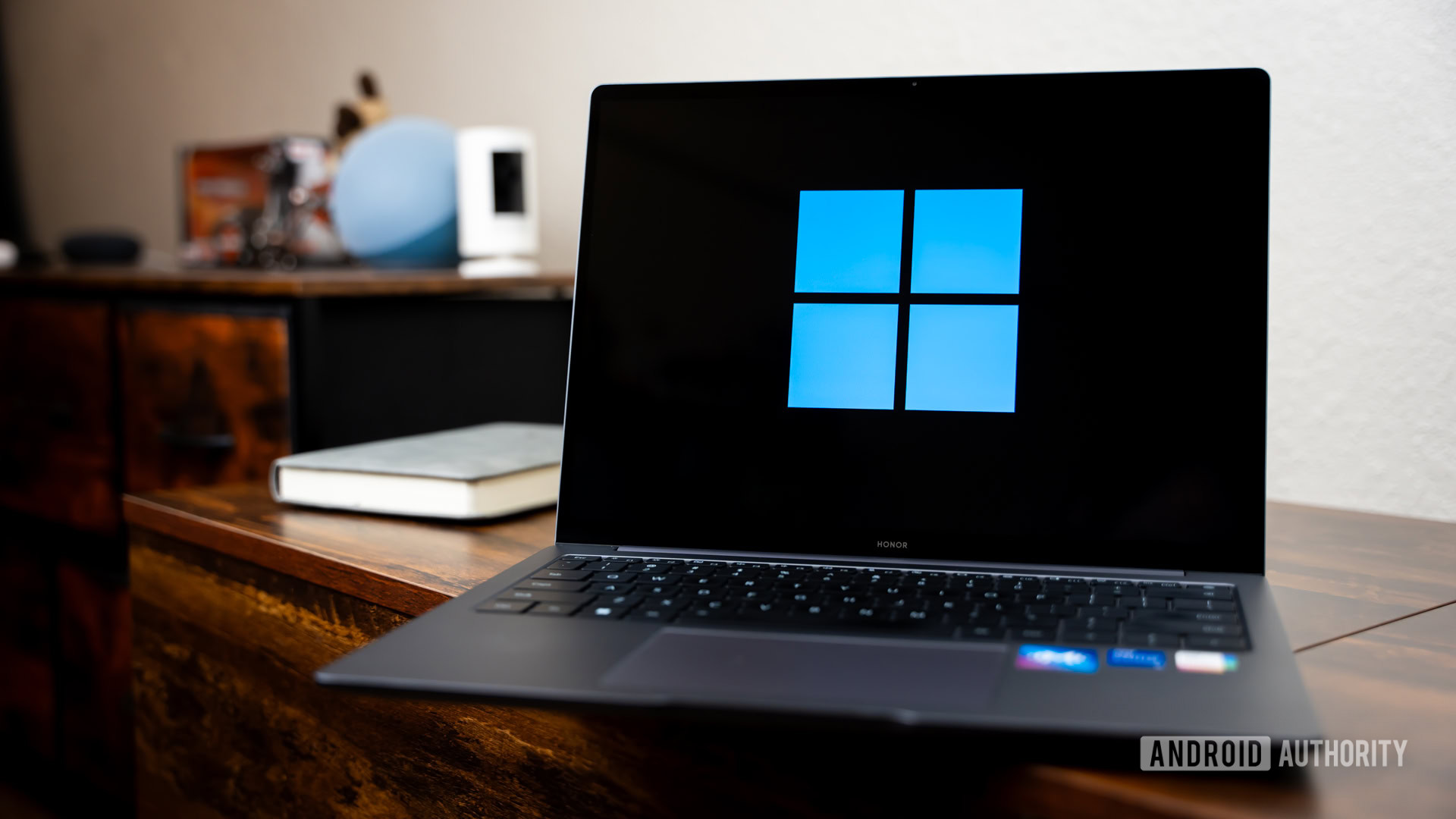
As we said earlier in this article, it’s too early to be able to point you to specific machines and say, “Buy this one.” Most of the new Windows machines aren’t out yet, and there could be more Chromebooks and MacBooks on the way that we don’t know about.
However, we can suggest the category you should be looking at. Here’s what we suggest:
- Households: If you just need a laptop for your home for browsing the web, watching movies, doing video calls, and maybe editing a photo or two, you can pick pretty much anything on the market. Yes, each laptop/chip/operating system will offer different pros and cons, but they all will do those basic tasks. Just find something within your budget and go for it.
- Gamers: At this point, stick with x64-based Intel Meteor Lake and AMD machines if you want something soon. If you can wait until the last quarter of 2024, Intel’s Lunar Lake chip seems very exciting, but unless battery life is a priority for you, you’ll probably be good with the performance of a Meteor Lake/Strix Point Ryzen CPU and a great dGPU.
- Students: Outside of general household users, you have the most choices of anyone on this list. You could probably go with anything and be happy, although we suggest either buying a MacBook or waiting to see how reviews stack up for the Copilot Plus PCs. Those machines will likely offer you the battery life you need, even if you’ll need to emulate some x64 programs your school might require. But hey, a Chromebook Plus might fulfill most of your needs, too. Figure out what your school requires and start there.
- Businesspeople: If you’re in business, you likely need older x64 (or even x86) programs. As such, we recommend sticking with Intel and AMD and regular old Windows. At the end of the year, take a look at how the Snapdragon X machines are doing and see if Windows on Arm could be viable for your business sector’s needs. Having that extra battery life — especially on international flights — could be a big quality-of-life improvement.
- Creatives: Let’s be real: you’re probably only buying a MacBook.
Stay tuned as Android Authority will have a lot more information on laptops as we get deeper into 2024, and we get some hands-on time with these machines. Until then, let us know in the comments which laptop you’re thinking about buying and why!
Thank you for being part of our community. Read our Comment Policy before posting.
